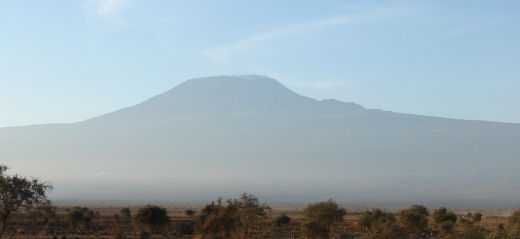The 2008 election ended the reign of junk science in our nation’s capital, and the chances of meaningful action on climate change, probably through a cap-and-trade system on emissions, have risen sharply. But the opponents of action claim that limiting emissions would have devastating effects on the U.S. economy. So it’s important to understand that just as denials that climate change is happening are junk science, predictions of economic disaster if we try to do anything about climate change are junk economics.
Yes, limiting emissions would have its costs. As a card-carrying economist, I cringe when “green economy” enthusiasts insist that protecting the environment would be all gain, no pain. But the best available estimates suggest that the costs of an emissions-limitation program would be modest, as long as it’s implemented gradually. And committing ourselves now might actually help the economy recover from its current slump.
A cap-and-trade system would raise the price of anything that, directly or indirectly, leads to the burning of fossil fuels. Electricity, in particular, would become more expensive, since so much generation takes place in coal-fired plants. Electric utilities could reduce their need to purchase permits by limiting their emissions of carbon dioxide — and the whole point of cap-and-trade is, of course, to give them an incentive to do just that. But the steps they would take to limit emissions, such as shifting to other energy sources or capturing and sequestering much of the carbon dioxide they emit, would without question raise their costs.
If emission permits were auctioned off — as they should be — the revenue thus raised could be used to give consumers rebates or reduce other taxes, partially offsetting the higher prices. But the offset wouldn’t be complete. Consumers would end up poorer than they would have been without a climate-change policy.
But how much poorer? Not much, say careful researchers, like those at the Environmental Protection Agency or the Emissions Prediction and Policy Analysis Group at the Massachusetts Institute of Technology. Even with stringent limits, says the M.I.T. group, Americans would consume only 2 percent less in 2050 than they would have in the absence of emission limits. That would still leave room for a large rise in the standard of living, shaving only one-twentieth of a percentage point off the average annual growth rate…
Right now, the biggest problem facing our economy is plunging business investment. Businesses see no reason to invest, since they’re awash in excess capacity, thanks to the housing bust and weak consumer demand. But suppose that Congress were to mandate gradually tightening emission limits, starting two or three years from now. This would have no immediate effect on prices. It would, however, create major incentives for new investment — investment in low-emission power plants, in energy-efficient factories and more.
To put it another way, a commitment to greenhouse gas reduction would, in the short-to-medium run, have the same economic effects as a major technological innovation: It would give businesses a reason to invest in new equipment and facilities even in the face of excess capacity. And given the current state of the economy, that’s just what the doctor ordered.
This short-run economic boost isn’t the main reason to move on climate-change policy. The important thing is that the planet is in danger, and the longer we wait the worse it gets. But it is an extra reason to move quickly. So can we afford to save the planet? Yes, we can. And now would be a very good time to get started.
We were in Kenya a few years ago visiting a Masai village near Amboseli in the desert below Mount Kilimanjaro. We were all looking up at the absence of snow [thinking about seeing it with Gregory Peck starring in the Hemingway novel with Ava Gardner]. It doesn’t look like that anymore. Our guide saw us all gaping and started to laugh his deep rolling laugh. "All you Americans are the same. You have to come to Africa to start to believe in global warming" [he obviously doesn’t understand the American man’s eye, because he then mentioned Susan Hayward instead of Ava Gardner]. He said the Masai always got tickled at us too. Sure enough, the Masai guys were giggling.

Mount Kilimanjaro 10/24/2007
[…] The rest is here: looking-forward-1boringoldman… […]